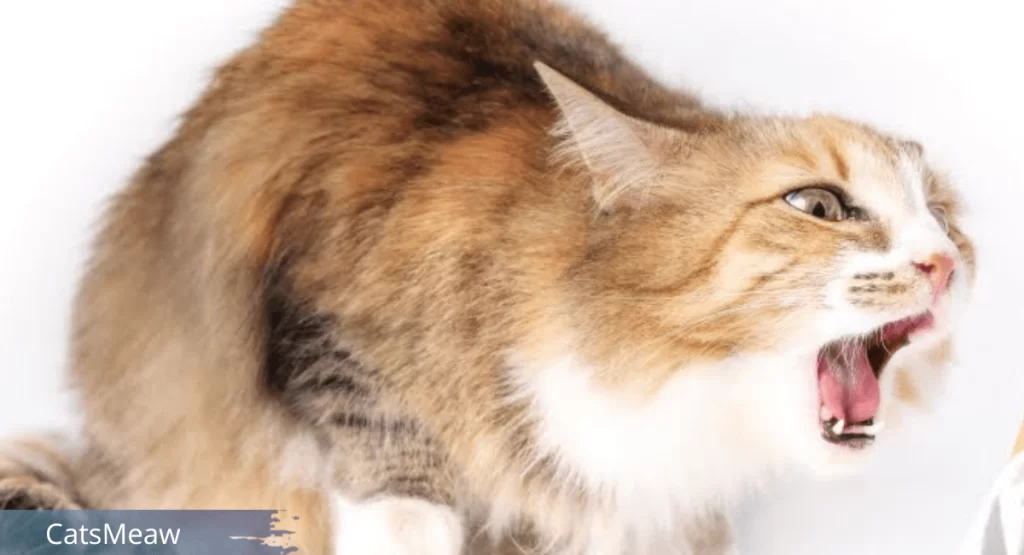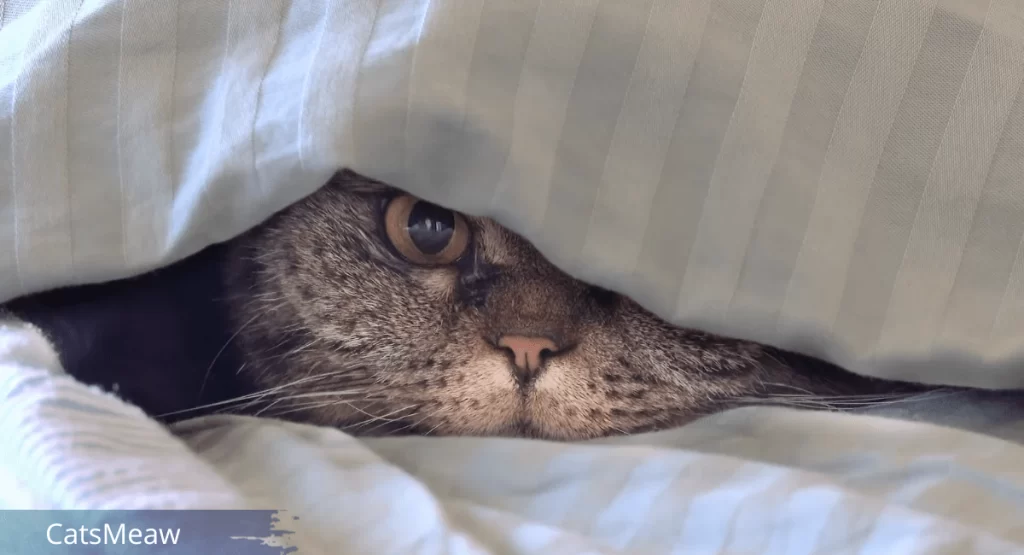There are many causes that can contribute to cat coughing fits. In this article “Cat Coughing: The Most Common Causes” from CatsMeaw, we will see together what are the most common causes that allow us to answer the question “why is my cat coughing”.
As for the frequency, this article will specifically deal with cases where your cat coughs several times a day for several days but without this cough ending up altering its routine and without it showing other worrying symptoms.

Table of Contents
In any case, a coughing cat is a reason to make an appointment with the vet, so we invite you to continue reading to find out why your cat won’t stop coughing.
Why is my cat coughing?
The 3 most common reasons why your cat coughs are:
- Asthma
- Rhinotracheitis
- Strongyles
In the rest of our article Cat Coughing: The Most Common Causes we will detail the points that we have briefly discussed in this box.
Cat Coughing
As we have said, a one-off cough should not be a reason to alarm you, it is from the moment it becomes chronic, that it repeats itself and that it does not pass that you will have to ask your veterinarian for advice because it can be caused by several causes.
Generally speaking, the purpose of coughing is to expel some substance or foreign body from the body. If this is the case, you will see that your cat starts to cough suddenly and continuously.
The cat’s cough will have different characteristics depending on where it comes from, it can therefore be caused by the throat or the lungs. Leaving aside the sudden coughing fits, in the rest of our article we will see the most common causes that can explain why your cat coughs a lot.
Feline asthma
It causes your cat to cough intensely and with very variable frequency. In some cats, feline asthma is associated with an allergic reaction that can be caused by the peeling of human skin. A reaction occurs in which histamines and eosinophils (a type of white blood cell that is associated with allergic reactions and parasitic infections) intervene.
Related: Cat is in Pain: Best 10 Way To Know About It
Sometimes, accompanied by the cat’s cough, apnea episodes occur in which the cat no longer breathes. Generally, your cat will not experience other symptoms. The diagnosis can be based on X-rays that will show a certain pulmonary pattern.
A blood analyst can also reveal the level of eosinophils. In cases where you suspect an allergy in your cat, we recommend that you have the corresponding tests done.
Treatment for cat asthma will depend on the severity of the condition. Some cats will not need it while others will rely on an inhaler. In the most severe cases, some cats may even need oxygen therapy. As you may have noticed, the answer to the question “why is my cat coughing” comes, in this specific case, from difficulty breathing at the pulmonary level.
Our pick: The Best Cat Health Supplies
Rhinotracheitis in cats
Rhinotracheitis is a very common and highly contagious viral disease in cats, especially in cats that have not yet developed their immune system, in cats carrying the feline immunodeficiency virus, which deprives them of their immune defenses, and in cats that live in communities.

It is produced by a herpesvirus and, in addition to coughing, it usually causes sneezing, nasal and eye discharge, fever, lethargy and anorexia because the mucus interferes with the sense of smell and this, added to the pain it causes, prevents them from eating normally. When coughing, you will see your cat stretching its neck in a characteristic posture.
There is no treatment for viruses, it is only possible to prescribe supportive measures that will include antibiotics to combat opportunistic secondary infections, fluid therapy for cases where dehydration occurs, in addition to any complementary medications considered necessary by your veterinarian.
It is very important that you treat your cat at the first symptoms because rhinotracheitis is a potentially fatal disease. You should know that cats that recover from it then become carriers of the virus. This means that rhinotracheitis is one of the causes that explain why your cat is coughing even though it is no longer sick.
Strongyles
Let’s conclude our article My cat is coughing – Causes of cat coughs by looking at the last most common cause of cat coughs: strongyles.
Strongyles are parasitic worms that, at one point in one of their life cycle phases, invade the lungs of cats, causing them to cough a lot. In addition, coughing is usually the only noticeable symptom and reflects the severity of the infestation. This cough occurs both when the cat is at rest and when it is active.
Related: How Much to Feed a Cat? Best Feeding Guidelines
Cats contract these parasites through the ingestion of small animals. The majority of cases are asymptomatic and can be resolved without treatment, thanks to the body’s defense mechanisms. They can be diagnosed by direct observation under a microscope of a stool sample. When your cat coughs, cats swallow the strongyles which end up in the digestive system and, consequently, in the cat’s stool. Your veterinarian will therefore need to choose an antiparasitic treatment for your cat.
This article is purely informative, at CatsMeaw we do not have the skills to prescribe veterinary treatments or make any diagnosis. We invite you to take your pet to the veterinarian if it presents symptoms of fever or illness.
